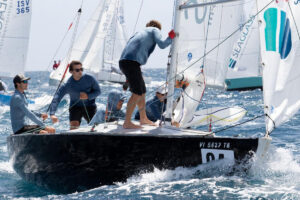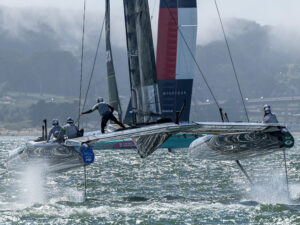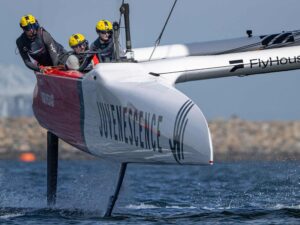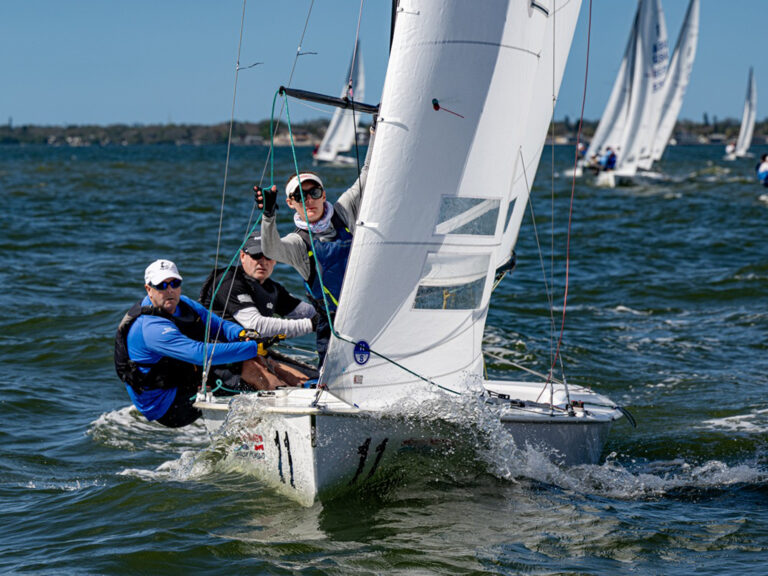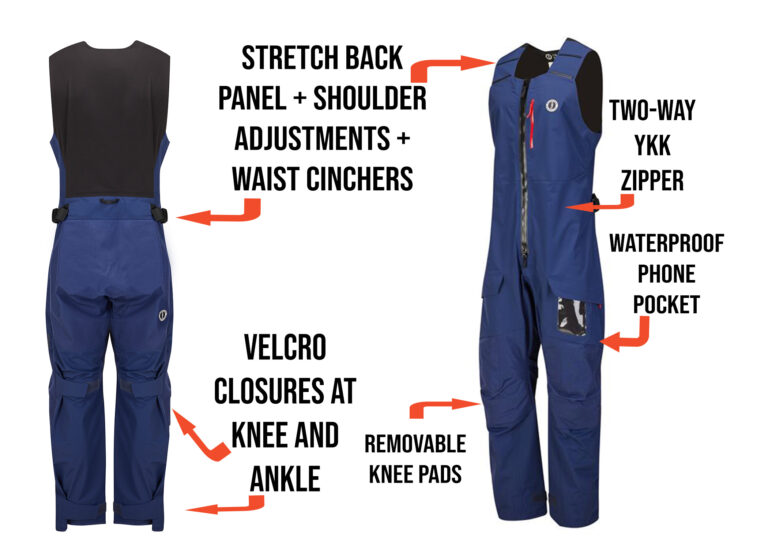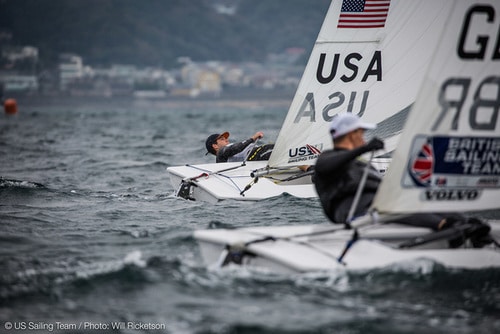
World Sailing held its annual conference in Mexico in November 2017 with a week of meetings involving several hundred delegates from all prominent sailing countries. There were many proposals to modify the racing rules discussed and voted upon, and for the most part, proposals that were accepted will not take effect until January 1, 2021, when the next revision of The Racing Rules of Sailing is published. However, there is a process for making “urgent” changes effective at an earlier date, and this year that process resulted in urgent changes to one definition and three rules. All of these changes become effective January 1, 2018.
The primary reason for the changes was to provide a fair method for handling incidents in which a coach, parent or other support person breaks a rule. Rule 64.4(b), which came into effect in January 2017, permitted the protest committee to penalize a boat — without a hearing — when the boat’s support person broke a rule. Many sailors and race officials argued that penalizing a boat without a hearing was not acceptable. U.S. Sailing wrote to all U.S. Sailing judges strongly urging them to never penalize a boat under Rule 64.4(b) for a rules breach by her support person and, later, supported proposals to World Sailing to change the rules that permitted such a penalty.
Four changes for 2018 clearly fix the problem U.S. Sailing identified. The changes also establish a clear process to be followed whenever the protest committee receives a report alleging a support person has broken a rule. Here’s a summary of the four changes World Sailing made:
■ A new rule, Rule 63.9, has been added, which specifies a process the protest committee must follow when it receives, under Rule 60.3(d), a report alleging that a support person has broken a rule. The committee must first decide whether the report is sufficiently convincing that a hearing should be called. If so, the committee must conduct the hearing following the procedures specified in Rules 63.2, 63.3, 63.4 and 63.6. This is the same procedure that is followed in a protest or redress hearing, but with one difference. For a hearing involving a support person, the protest committee may appoint a “prosecutor” — a person who will present the case against the support person. In the case of a protest or a request for redress, the role of prosecutor is played by the protestor or the boat requesting redress.
■ Section (e) of the definition Party has been expanded. For any hearing involving a support person, the parties to the hearing are: the support person alleged to have broken a rule, any boat that support person supports, and the prosecutor. This change means that if a hearing is held because a coach, a parent or any other support person may have broken a rule, every boat that that person supports is entitled to be represented during the hearing, and will have all the rights a protestee would have in a protest hearing. Boats can no longer be penalized without having the chance to defend themselves. The change to the definition Party addresses U.S. Sailing’s primary complaint that under the previous rule a boat could be penalized without a hearing if her support person broke a rule.
■ Previously, Rule 64.4(b) referred to a penalty given to a competitor as a result of a breach of a rule by a support person. That did not make sense. A regatta is a contest between boats, and each boat entered is scored and can be penalized. When a competitor breaks a rule, his or her boat receives the penalty. Rule 64.4(b) has been reworded so that only boats, and not competitors, receive penalized. In addition, revised Rule 64.4(b)(2) states that the warning described in that rule must be given in writing.
■ There are now four types of hearings: protest hearings, redress hearings, hearings following reports under Rule 69 alleging misconduct, and hearings following a report under Rule 60.3(d) alleging that a support person has broken a rule. Because protest hearings and hearings under rule 60.3(d) are not the same, a technical change was necessary — Rule 64.4(b) was added to the list of rules in Rule 63.1.
The full text of these changes to the racing rules is available now on the World Sailing website.
The World Sailing Racing Rules Committee publishes The Case Book, which contains authoritative interpretations of the racing rules. Every year new cases are added to it, and occasionally an old case is revised. During 2017 meetings in Mexico, World Sailing made changes in an old case, Case 78, which will affect the tactics that can be used in major races for Olympic classes, as well as in some local races.
Case 78 concerns tactics, usually applied near the end of a series, in which one boat, without breaking any rule of Part 2, closely covers another for an extended period of time in order to drive the other boat well back in the fleet. The case addresses the question: When are such tactics “in compliance with recognized principles of sportsmanship and fair play” and, therefore, consistent with Rule 2, Fair Sailing?
From 2013 to 2017, Case 78 stated that such tactics do not break Rule 2 provided “there is a sporting reason” for using them. At recent major regattas for Olympic classes, that test has caused problems. For example, some national authorities use their sailors’ scores at a continental championship to select members of their national team or to select a boat that will qualify to represent their nation at a future event. Often, the details of such a selection procedure are confidential, and as a result, it is not possible for the protest committee at the continental championship to decide whether a boat that used close covering tactics had a sporting reason for doing so.
Another problematic situation happened at a recent event in which Boat A had clinched first place before the last race of the series. After the start of the final race, Boat A drove Boat B, at the time second in the standings, way back in the fleet, with the result that B ended up in fourth after the last race. Boat B then protested A for breaking Rule 2, and the helmsman of A gave as his sporting reason for using the tactics: “I wanted to practice those tactics.” The protest committee accepted A’s reason as a sporting reason and did not find that A broke Rule 2, but many people thought A’s tactics were not fair play.
Because of these issues, World Sailing has changed the criterion for deciding whether extended close covering violates Rule 2. Effective January 1, 2018, the criterion will be whether the covering tactics “benefit [the boat’s] final ranking in the event.” Clearly, Boat A’s close covering of Boat B in the example above would break Rule 2 because there was nothing she could have done in the last race to benefit or improve her final ranking in the event. Also, boats will no longer be able to point to procedures for national team selection or qualification for a future event to justify extended interference with another boat.
This could affect you in your local sailing series. Many clubs combine the standings of boats in several weekend events to create a season or to pick a seasonal club champion. The implication of the change in Case 78 will be that a boat sailing in a particular weekend event may use extended close covering only when it will benefit her standing in that weekend event. Extended close covering that does not benefit her standing in the weekend event can no longer be justified on the grounds that it improves her standing in the season series.
The full text of revised Case 78 is, or will soon be, available on the World Sailing website.
E-mail for Dick Rose may be sent to rules@sailingworld.com

